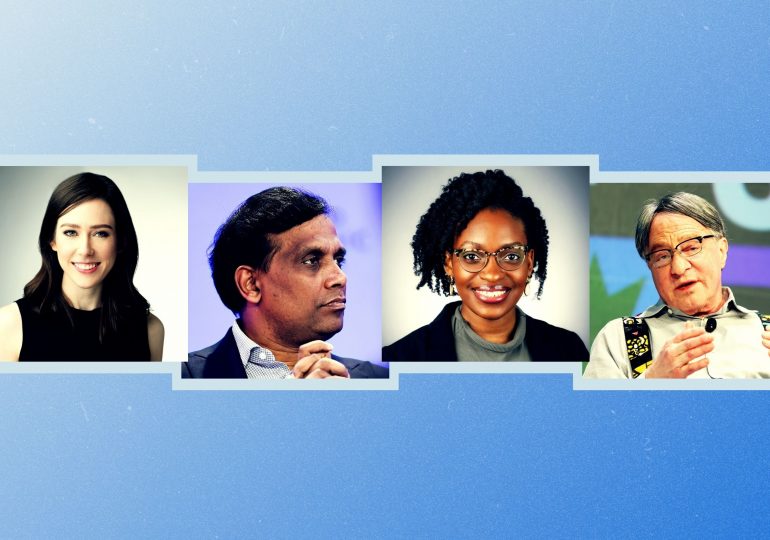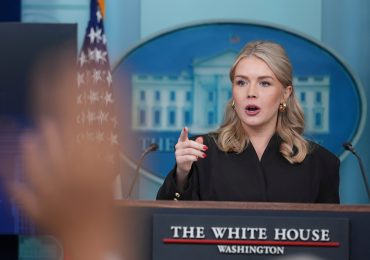Inventor and futurist Ray Kurzweil, researcher and Brookings Institution fellow Chinasa T. Okolo, director of the U.S. Artificial Safety Institute (AISI) Elizabeth Kelly, and Cognizant CEO Ravi Kumar S, discussed the transformative power of AI during a panel at a TIME100 Impact Dinner in San Francisco on Monday. During the discussion, which was moderated by TIME’s editor-in-chief Sam Jacobs, Kurzweil predicted that we will achieve Artificial General Intelligence (AGI), a type of AI that might be smarter than humans, by 2029.
[time-brightcove not-tgx=”true”]
“Nobody really took it seriously until now,” Kurzweil said about AI. “People are convinced it’s going to either endow us with things we’d never had before, or it’s going to kill us.”
Cognizant sponsored Monday’s event, which celebrated the 100 most influential people leading change in AI. The TIME100 AI spotlights computer scientists, business leaders, policymakers, advocates, and others at the forefront of big changes in the industry. Jacobs probed the four panelists—three of whom were named to the 2024 list—about the opportunities and challenges presented by AI’s rapid advancement.
Kumar discussed the potential economic impact of generative AI and cited a new report from Cognizant which says that generative AI could add more than a trillion dollars annually to the US economy by 2032. He identified key constraints holding back widespread adoption, including the need for improved accuracy, cost-performance, responsible AI practices, and explainable outputs. “If you don’t get productivity,” he said, “task automation is not going to lead to a business case stacking up behind it.”
Okolo highlighted the growth of AI initiatives in Africa and the Global South, citing the work of professor Vukosi Marivate from the University of Pretoria in South Africa, who has inspired a new generation of researchers within and outside the continent. However, Okolo acknowledged the mixed progress in improving the diversity of languages informing AI models, with grassroots communities in Africa leading the charge despite limited support and funding.
Kurzweil said that he was excited about the potential of simulated biology to revolutionize drug discovery and development. By simulating billions of interactions in a matter of days, he noted, researchers can accelerate the process of finding treatments for diseases like cancer and Alzheimer’s. He also provided a long-term perspective on the exponential growth of computational power, predicting a sharper so-called S-curve (a slow start, then rapid growth before leveling off) for AI disruption compared to previous technological revolutions.
Kelly addressed concerns about AI’s potential for content manipulation in the context of the 2024 elections and beyond. “It’s going to matter this year, but it’s going to matter every year more and more as we move forward,” she noted. She added that AISI is working to advance the science to detect synthetically created content and authenticate genuine information.
Kelly also noted that lawmakers have been focusing on AI’s risks and benefits for some time, with initiatives like the AI Bill of Rights and the AI Risk Management Framework. “The president likes to use the phrase ‘promise and peril,’ which I think pretty well captures it, because we are incredibly excited about stimulant biology and drug discovery and development while being aware of the flip side risks,” she said.
As the panel drew to a close, Okolo urged attendees, which included nearly 50 other past and present TIME100 AI honorees, to think critically about how they develop and apply AI and to try to ensure that it reaches people in underrepresented regions in a positive way.
“A lot of times you talk about the benefits that AI has brought, you know, to people. And a lot of these people are honestly concentrated in one region of the world,” she said. “We really have to look back, or maybe, like, step back and think broader,” she implored, asking leaders in the industry to think about people from Africa to South America to South Asia and Southeast Asia. “How can they benefit from these technologies, without necessarily exploiting them in the process?”
The TIME100 Impact Dinner: Leaders Shaping the Future of AI was presented by Cognizant and Northern Data Group.
Leave a comment








